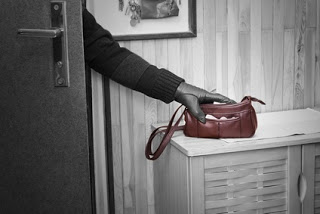Among the many useful insights I took away from Gavin de Becker’s masterful book The Gift of Fear, one of the most profound was a deeper appreciation for the distinction between worry and fear. Until reading the final chapter, I had not pondered the difference. But the author not only defines them clearly, he points out why one is harmful and the other can be life-saving.
Gavin de Becker is one of the most sought-after, highly respected experts on security issues in the world. His firm protects people who are at risk, and his clients include celebrities, governments and large corporations. He knows what he’s talking about, and his book is filled with stories – some startling, some chilling, and all true – that will remain embedded in my brain for years to come.
According to de Becker, people too often associate the word fear with other words like worry, panic and anxiety. But they are not the same. While the latter emotions are voluntary, genuine fear is involuntary. It’s a survival signal wired in us that sounds only in the presence of danger and is intended to be very brief. The problem is that “unwarranted fear has assumed a power over us that it holds over no other creature on earth.”
So why do we do it?
People expend so much energy on worry because it serves them in some way.
One of the less dramatic but still memorable stories illustrates the point. A client asked De Becker to interview a woman who worked in one of their offices. She was worried about being attacked in the parking lot because she was always the last one to leave. At the end of every work day, she was filled with intense fear and anxiety. When asked why she always left so late, the woman replied that she was concerned about being perceived by her co-workers as lazy. Over time, she came to take pride in having the identify as the employee who always worked the longest. Because of her need to retain this identity, she’d never considered leaving at the same time as others. Instead, she remained stuck in a continuous state of worry.
There’s another problem with constantly being on the alert. When you’re preoccupied with potential dangers that may be lurking, you actually decrease the likelihood that you’ll perceive a real danger or threat. With your imagination working overtime, you’re more likely to miss the specific signals that could tell you something is amiss.
As de Becker says, “If one feels fear of all people all the time, there is no signal reserved for the times when it’s really needed… If we are looking for some specific, expected danger, we are less likely to see the unexpected danger…Your survival brilliance is wasted when you focus on unlikely risks.”
He offers three tips for distinguishing between fear and worry:
1. When you feel fear, listen.
2. When you don’t feel fear, don’t manufacture it.
3. If you find yourself creating worry, explore and discover why. Take time to answer the question: How does this serve me?
You may find that the price of worrying is greater than the price of changing, and that insight can serve as the motivation you need to make the necessary change.
“To worry oneself is a form of self-harassment …Worry is the fear we manufacture – it is not authentic. If you choose to worry about something, have at it, but do so knowing it’s a choice.”
Gavin de Becker in The Gift of Fear






